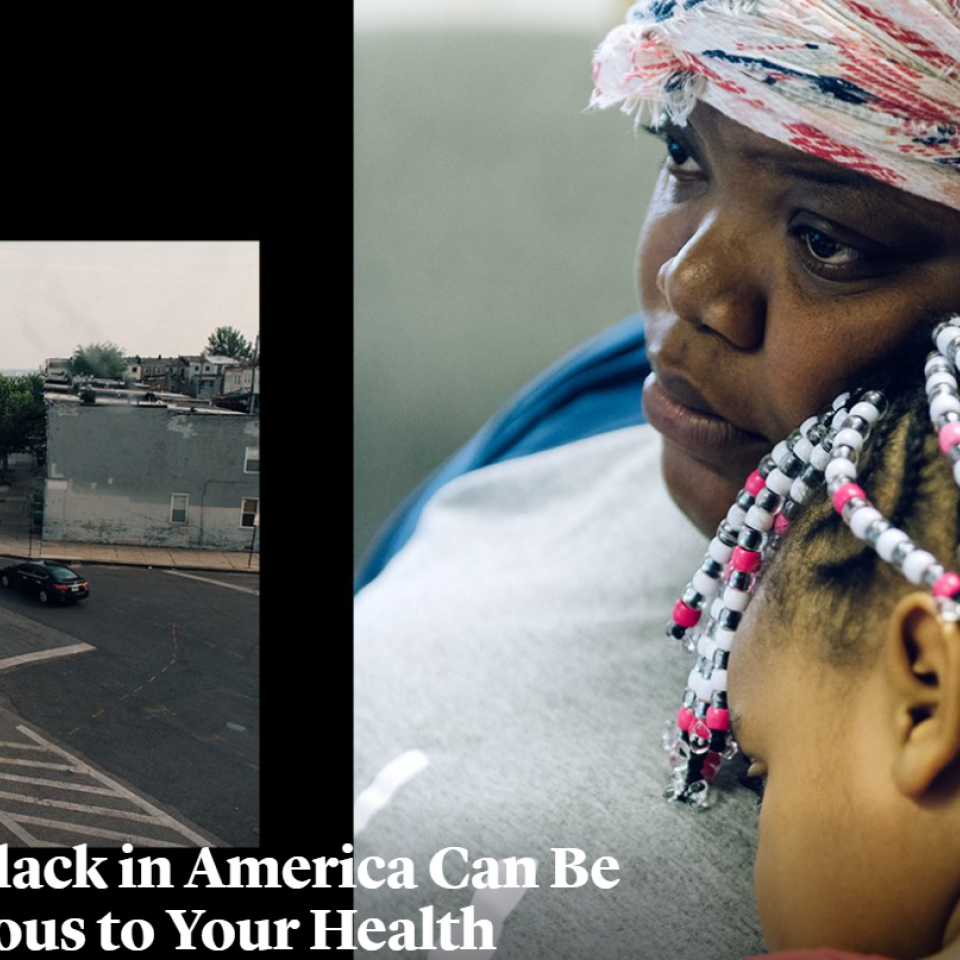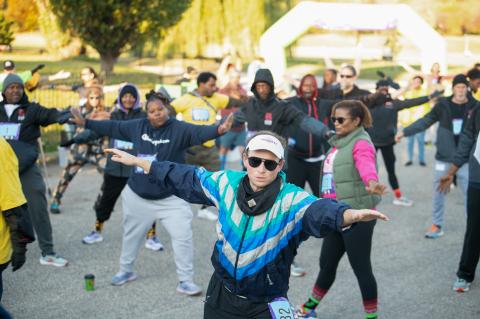
The Atlantic looks at health disparities in Baltimore
Former Health Care for the Homeless client Kiarra Boulware couldn’t seem to overcome the drugs and violence overwhelming Sandtown, where she grew up and where nearly half of all families live in poverty.
For a new story in The Atlantic, Being Black in America Can Be Hazardous to Your Health, journalist Olga Khazan spent over a year getting to know Kiarra and how neighborhoods shape people’s health outcomes.
Olga followed Kiarra throughout Baltimore—at home, work, and during her regular appointments at our West Baltimore clinic with Dr. Tyler Gray and Behavioral Health Therapist Ebony Hicks, both featured in the article.
At only 27 years old, Kiarra is suffering from diabetes, depression, and, formerly, substance use—like many people in her neighborhood.
“[Kiarra] blames herself for her poor health—as do many of the people I met in her community, where obesity, diabetes, and heart disease are ubiquitous,” Olga writes. “But these individual failings are only part of the picture.”
The other part of the picture is what we often refer to as “social determinants of health.” The idea that where people live affects how they live.
At Health Care for the Homeless, we’re working to identify those social determinants to understand and address them better.
“Social determinants are the areas of your life that impact your health before you reach your doctor’s office,” Director of Housing Services at Health Care for the Homeless Lawanda Williams explains. “Poverty, access to food and where you live are all examples. We know in Baltimore that the separation of two or three miles—like between Roland Park and Park Heights—can mean a 20-years difference in life expectancy.”
Following Olga’s story, The Atlantic pulled together advocates and health professionals in Baltimore, including a number of people from Health Care for the Homeless like Lawanda and President and CEO Kevin Lindamood, to discuss health disparities during a forum titled Healing the Divide: An Atlantic Forum on Health Equity.
Sitting with Kiarra during the forum was Steve Dixon, President and Chief Operating Officer of Penn North Recovery Center, where Kiarra was treated for substance use and more recently trained as a community health worker. According to Kiarra, it’s these types of comprehensive recovery programs that saved her life, and that more people need access to. And as Steve will point out, housing is big on the list, too.
“It’s a shame that you have this much homelessness in this beautiful city and you have all these abandoned buildings,” Steve says about the potential to turn existing buildings into affordable housing.
Watch video from the forum here.
Olga’s article will appear in The Atlantic’s print publication in July.
More Recent News
At our annual staff holiday party, we take time to recognize and celebrate staff members who best represent our Core Values, as well as one recipient of the Von Bradshaw Award, named after Delvonia "Von" Bradshaw, who passed away in 2024 and truly held the principles of Health Care for the Homeless to heart. Please congratulate your colleagues when you see them!
Those of us in the Health Care for the Homeless community share a belief in something powerful: that everyone should have a place to call home.
Hope for that vision isn’t passive. It’s something that clients, staff and community supporters make possible together.
With SNAP benefits in Maryland facing uncertainty, many families are wondering how they’ll put food on the table. Here are ways Health Care for the Homeless is helping, as well as a list of local food assistance resources.
On Saturday, November 1, more than 300 runners, walkers, friends and volunteers gathered in Patterson Park for the 2025 Rock Your Socks 5K. Read all about this year's awesome event!




